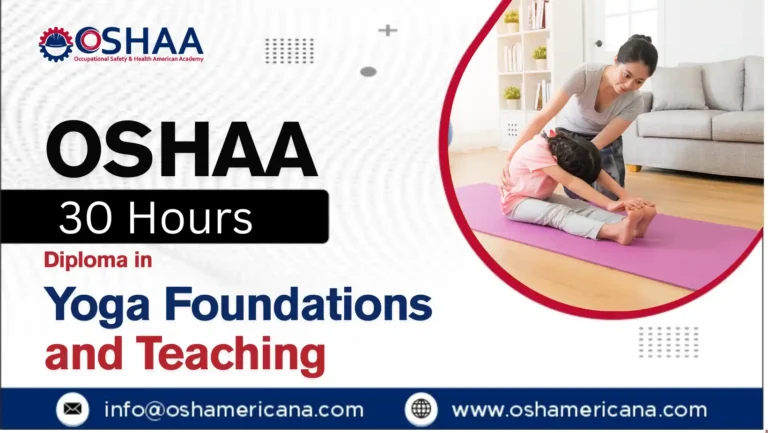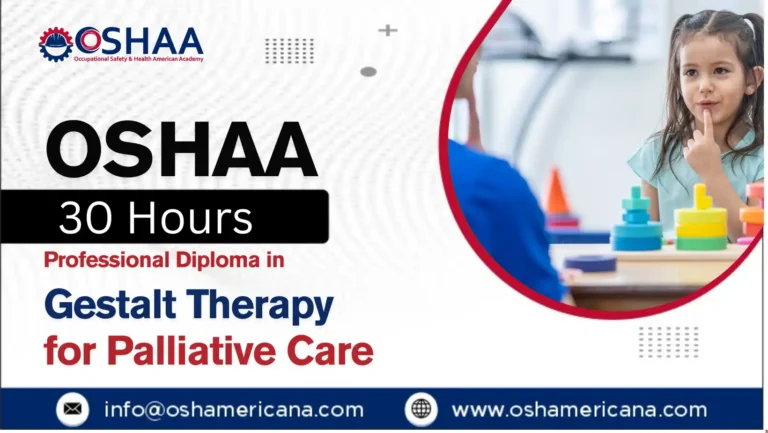In the healthcare sector, obtaining informed consent is a crucial part of providing quality care while maintaining patient autonomy. The OSHAA 30-Hours Professional Diploma in Consent Training in Healthcare is designed to ensure healthcare professionals have the knowledge and skills to navigate consent-related challenges effectively. This diploma programme equips participants with the tools necessary to handle informed consent in a legal, ethical, and patient-centred manner.
Consent is a fundamental principle in healthcare practice. It ensures that patients have a clear understanding of their treatment options, including the potential risks, benefits, and alternatives, and gives them the right to make informed decisions about their care. Failure to obtain proper consent can lead to legal consequences, breaches of ethical standards, and, most importantly, a loss of trust between patients and healthcare providers.
The OSHAA 30-Hours Professional Diploma in Consent Training in Healthcare is an intensive, focused programme that offers a comprehensive overview of consent within the healthcare setting. It covers essential legal and ethical considerations, practical application, and patient-centred communication strategies.
The OSHAA 30-Hours Professional Diploma in Consent Training in Healthcare is an essential course for healthcare professionals who want to improve their practice and ensure they are fully compliant with legal and ethical standards. By completing this diploma, healthcare providers will be better equipped to navigate the complexities of obtaining informed consent while fostering trust and respect with their patients.
OSHAA 30-Hours Professional Diploma in Consent Training in Healthcare
Study Units
Learning Outcomes
Introduction to Informed Consent in Healthcare (2 Hours)
- Understand the concept of informed consent and its importance in healthcare.
- Recognise the legal and ethical principles underpinning informed consent.
- Identify the role of informed consent in patient autonomy and decision-making.
Legal and Ethical Foundations of Consent (4 Hours)
- Understand the legal frameworks surrounding informed consent in healthcare settings.
- Recognise the ethical principles, including autonomy, beneficence, and non-maleficence, that guide consent practices.
- Understand the implications of failing to obtain proper consent.
Understanding Patient Autonomy and Rights (3 Hours)
- Define patient autonomy and explain its role in healthcare decisions.
- Understand the patient’s right to make decisions regarding their care.
- Recognise how to respect and uphold patient autonomy in clinical practice.
Consent in Medical Procedures and Interventions (4 Hours)
- Understand how to obtain informed consent for various medical procedures and interventions.
- Identify the steps required to ensure patients fully understand the risks and benefits of proposed treatments.
- Recognise the importance of clear communication in medical decision-making.
Capacity to Consent and Vulnerable Populations (4 Hours)
- Understand how to assess a patient’s capacity to consent.
- Learn about the challenges involved in obtaining consent from vulnerable populations, including children, the elderly, and those with cognitive impairments.
- Explore the ethical considerations when working with vulnerable individuals in the consent process.
The Role of Healthcare Providers in Obtaining Consent (3 Hours)
- Identify the responsibilities of healthcare providers in ensuring informed consent is obtained.
- Understand the importance of creating an environment that encourages open discussion and patient understanding.
- Learn to balance medical expertise with patient preferences during the consent process.
Documenting and Verifying Consent (3 Hours)
- Understand the importance of properly documenting the consent process.
- Recognise the legal requirements for documenting and verifying informed consent in healthcare settings.
- Learn best practices for maintaining accurate and comprehensive records of consent.
Consent in Specific Healthcare Settings (3 Hours)
- Understand how the consent process differs in various healthcare settings, such as hospitals, outpatient clinics, and long-term care facilities.
- Explore the unique challenges and requirements for obtaining consent in specialised medical areas.
- Recognise the role of institutional policies in shaping consent practices.
Communicating Consent Effectively with Patients (4 Hours)
- Learn effective communication techniques for discussing consent with patients.
- Understand how to ensure patients comprehend the information related to their treatment options.
- Explore strategies for addressing patient concerns and questions during the consent process.
- Comprehensive Understanding of Informed Consent – Gain a thorough understanding of the principles and legal aspects of informed consent in healthcare.
- Enhanced Legal Compliance – Learn the legal frameworks surrounding consent, ensuring healthcare professionals stay compliant with relevant laws and regulations.
- Improved Patient Communication – Develop effective communication skills to explain medical procedures and treatments clearly, fostering trust and collaboration with patients.
- Ethical Practice – Strengthen your ethical decision-making abilities by understanding the balance between patient autonomy, rights, and healthcare provider responsibilities.
- Confidence in Managing Consent Situations – Gain confidence in handling various consent-related challenges, including vulnerable populations and complex medical scenarios.
- Risk Mitigation – Reduce the risk of legal issues, malpractice claims, or ethical breaches by ensuring proper consent processes are followed.
- Professional Development – Enhance your qualifications and career prospects in healthcare, medical administration, and patient care roles.
- Patient-Centred Care – Promote patient autonomy and involvement in their healthcare decisions, improving overall patient satisfaction and outcomes.
- Specialised Knowledge in Healthcare Settings – Learn how consent processes differ across various healthcare environments, equipping you to manage diverse clinical situations effectively.
- Accurate Documentation Practices – Master the best practices for documenting and verifying consent, ensuring legal protection and clear patient records.
This diploma provides healthcare professionals with the essential tools and knowledge to navigate consent processes with confidence and professionalism, ultimately contributing to better patient care and legal protection.
The OSHAA 30-Hours Professional Diploma in Consent Training in Healthcare is designed for healthcare professionals who are involved in patient care and need to ensure that informed consent is obtained and properly managed. This course is ideal for:
- Doctors and Nurses – Gain the skills needed to effectively communicate and obtain informed consent for medical procedures and interventions.
- Dentists and Allied Health Professionals – Understand the principles of consent in your practice and how to apply them across different treatments.
- Healthcare Managers and Administrators – Learn how to develop and implement policies surrounding informed consent in healthcare settings.
- Medical Students and Trainees – Acquire foundational knowledge of informed consent to support your practice in clinical settings.
- Legal Professionals in Healthcare – Understand the legal implications of consent, helping you advise healthcare providers on compliance and best practices.
- Patient Advocates and Social Workers – Learn how to support patients in making informed decisions about their care and ensure their rights are protected.
- Clinical Research Staff – Understand how to obtain informed consent in clinical trials and research studies to meet ethical and legal requirements.
This course is suitable for anyone working in healthcare who is responsible for ensuring informed consent is obtained from patients, helping them navigate the complexities of consent in a professional and legally compliant manner.







